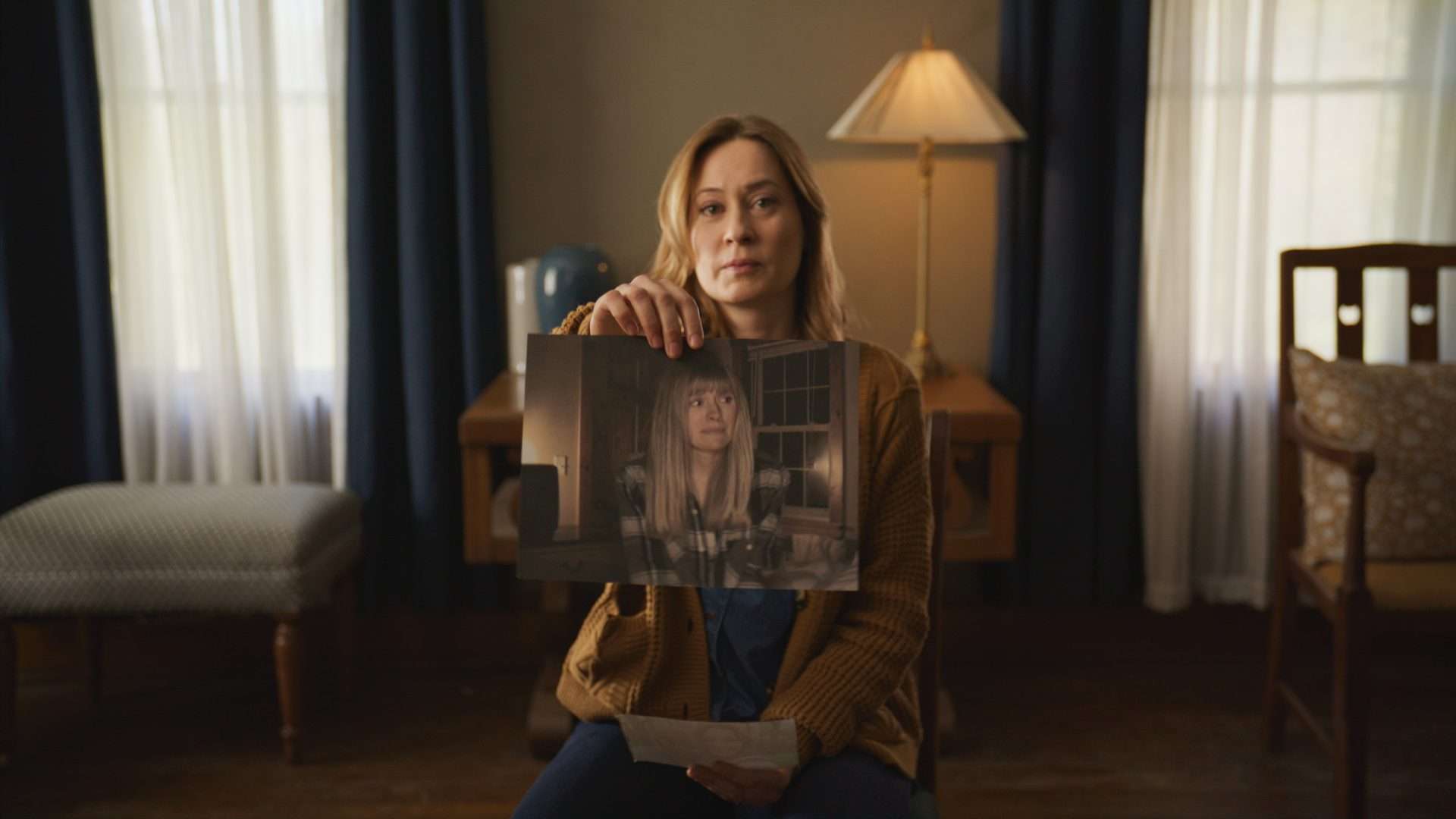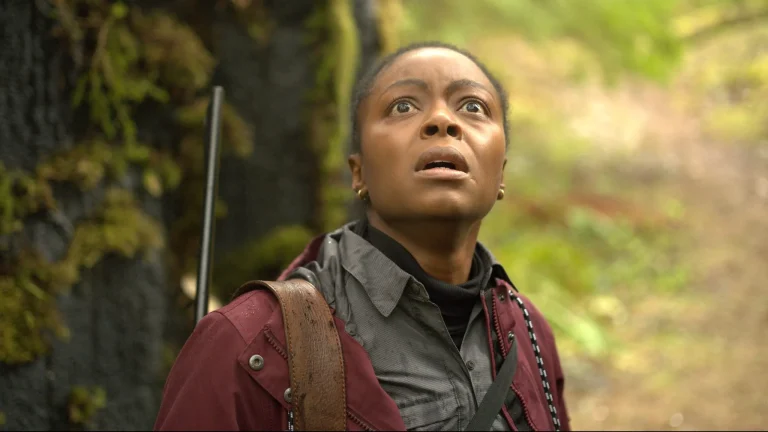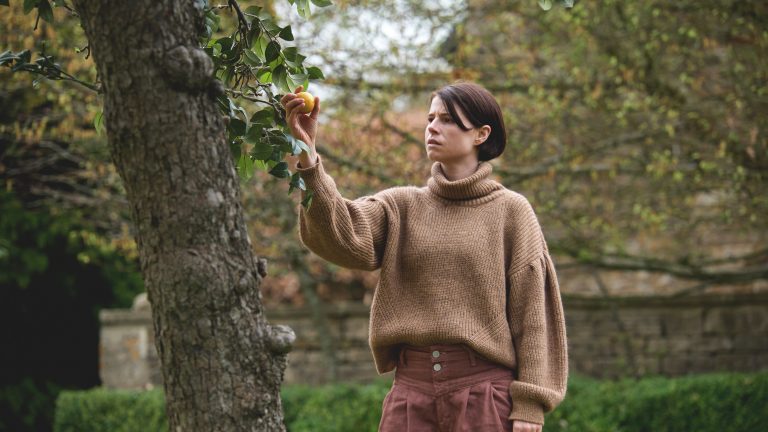The path from film critic to filmmaker is anything but unpaved; the French New Wave was birthed primarily from a group of analytical enthusiasts convinced that they needed to step up to reinvigorate a dying medium. But the YouTube generation of film critics—the ones who skirt accusations of pretension by saying, “I’m not a critic, I’m a reviewer”—necessarily come with a different background relative to their audiences. Not only does the advent of video criticism enable these figures to be seen and heard in more tangible ways than the written word ever could, but social media has also brought forth entirely new levels of audience interaction; these critics don’t feel like distant snobs. They feel like peers.
As such, the prospect of Chris Stuckmann, the affable everyman with a bottomless passion for the art form, making his feature directorial debut couldn’t help but garner the sort of grassroots enthusiasm unseen in the days of Peter Bogdanovich or Paul Schrader. “Shelby Oaks,” right out of the gate, is the subject of genuine audience fervor that simply can’t be bought; for Stuckmann’s viewers, the culmination of years and years of effort is like watching an old friend finally fulfill that dream he’d never let you forget about. Now, after a process extending all the way back to 2016, Stuckmann’s debut is here, and nobody can take that away from him. It’s merely unfortunate that the enthusiasm for this project’s existence can’t quite be echoed toward its eventual outcome.
Mia (Camille Sullivan) has been searching for her missing sister, Riley (Sarah Durn), for the past 12 years. A prominent YouTuber whose specialty was investigating supernatural phenomena, Riley’s passion for the paranormal led to the sudden disappearance of herself and her crew in a decrepit corner of Ohio known as Shelby Oaks. Upon Stuckmann’s request to keep further details under wraps, all that will be said of the plot from here is that its introduction as a found-footage film quickly gives way to a larger framing device of a faux-documentary (“mockumentary” seems tonally inaccurate) chronicling Mia’s search, and it’s here where the director’s vision finds its most fertile ground for genre subversion.
This early subversion of the found footage format into a more playful bend on the documentary format is Stuckmann’s most robust narrative achievement (and it doesn’t even end there), but in this achievement can be found the crux of what’s missing from “Shelby Oaks.” This structuring is a clever conceit, but once those hands are all dealt, the appeal wears off rather quickly, and what’s left in this frantic search for a missing loved one is a distinct lack of direction.

The bigger issue in this regard is that Stuckmann’s enthusiasm for the horror genre can’t help but spill over into the content of his film, and “Shelby Oaks” consequently becomes a hodgepodge of recognizable influences that never rise above their mere allusion. It’s more than fine for an artist to take inspiration from existing material, but Stuckmann doesn’t offer much in the way of development beyond Frankensteining these influences together to the point of dilution.
In all fairness to the horror aficionado, this project had been in development for the better part of the past decade, and giving Stuckmann the benefit of the doubt, many of the films to which one might point as signs of a derivative story had been released during the period of production, rather than before. Even then, looking at what’s offered to fill in the gaps, little of “Shelby Oaks” can possibly draw up the same degrees of enthusiasm as those other films because this vision just feels too careful to carry the spontaneity invoked by its reveals. Moments intended to drum up shock and terror feel noticeably orchestrated, as Stuckmann’s penchant for blaring the score or cutting to an important detail rather than letting the audience find it in the frame feels almost patronizing given the director’s own background in detail-oriented analysis.
Orchestrated as “Shelby Oaks” may feel, there is at least a strong sense of sincerity to Stuckmann’s handling of his characters that supersedes the distracting artifice of the story surrounding them. Spots of well-placed (if mild) humor alongside admirable (if clunky) plays at character interplay make Mia and those around her feel like they were conceived by a mind with great care for the humanity they represent but merely missing the right vocabulary to organically articulate that value.
What made critics like François Truffaut and Paul Schrader so formidable—and, more importantly, what made their transition into filmmaking feel all the more urgent—was the fact that their move from analysis to craft was motivated by an almost instinctive desire to contribute radical shifts to the medium they’d spent so long dissecting. These journalists became artists because, to them, something was missing in the landscape of cinema, something that they felt they needed to contribute if nobody else was going to step up.
Chris Stuckmann clearly loves movies—horror movies in particular—but little in “Shelby Oaks” strikes as the work of someone who felt compelled to bring a new dimension to the conversation, but rather someone who wanted to enthusiastically join in on the existing discussion. As a result, Mia’s search for Riley becomes Stuckmann’s search for motivation—with some time and the same care exerted here, that search may someday pay off.





![Parasite (Gisaengchung) [2019] Review – A blood sucking drama on class divide](https://79468c92.delivery.rocketcdn.me/wp-content/uploads/2019/09/Parasite-highonfilms2-768x321.jpg)


